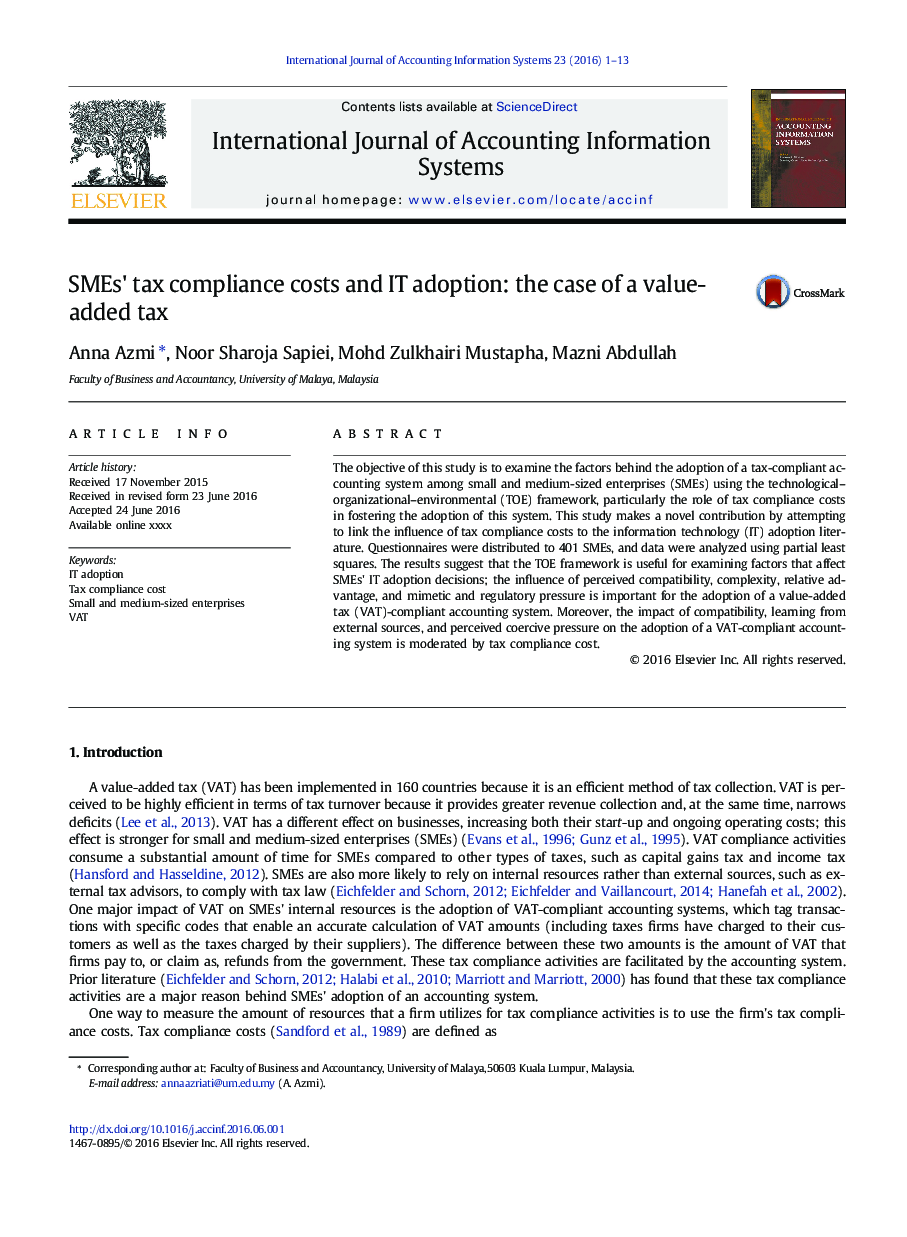| کد مقاله | کد نشریه | سال انتشار | مقاله انگلیسی | نسخه تمام متن |
|---|---|---|---|---|
| 1005314 | 1481998 | 2016 | 13 صفحه PDF | دانلود رایگان |
• The TOE framework is useful for examining factors that affect SMEs’ adoption decision with respect to an accounting system.
• Compatibility, complexity, relative advantage, and mimetic and regulatory pressure are important in SMEs’ IT adoption.
• Tax compliance costs had positive effects as a moderator in the early stages of IT adoption and VAT implementation.
The objective of this study is to examine the factors behind the adoption of a tax-compliant accounting system among small and medium-sized enterprises (SMEs) using the technological–organizational–environmental (TOE) framework, particularly the role of tax compliance costs in fostering the adoption of this system. This study makes a novel contribution by attempting to link the influence of tax compliance costs to the information technology (IT) adoption literature. Questionnaires were distributed to 401 SMEs, and data were analyzed using partial least squares. The results suggest that the TOE framework is useful for examining factors that affect SMEs' IT adoption decisions; the influence of perceived compatibility, complexity, relative advantage, and mimetic and regulatory pressure is important for the adoption of a value-added tax (VAT)-compliant accounting system. Moreover, the impact of compatibility, learning from external sources, and perceived coercive pressure on the adoption of a VAT-compliant accounting system is moderated by tax compliance cost.
Journal: International Journal of Accounting Information Systems - Volume 23, December 2016, Pages 1–13
